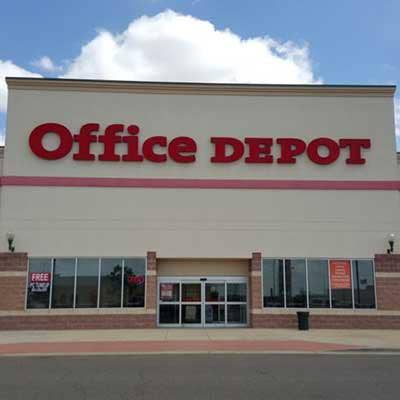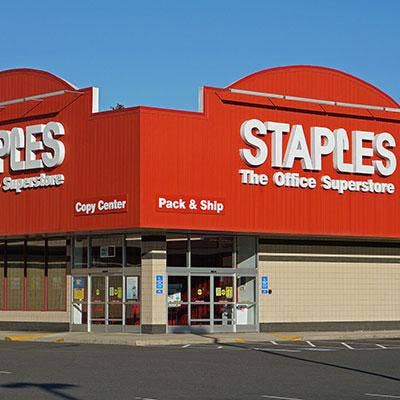8 Financial Takeaways From Office Depot's 8-K SEC Filing After $1B Bid For CompuCom

Making A Retail Push
Office Depot has struck an agreement to acquire systems integration powerhouse CompuCom for approximately $1 billion as the mega-retailer shifts toward the business and technology services industry.
By joining forces with the Charlotte, N.C.-based solution provider, which works with six of the top 10 Fortune 500 firms, Office Depot instantly attains a wide-scale IT services presence in North America – a "fragmented," $25 billion market, according to the office supplies specialist.
"Other office supply companies have tried this before. But they bought very small businesses, very small MSPs," Ken Jackowitz, CompuCom's chief product officer, told CRN earlier this month. "Where we differ is that we have 6,000 W2 technicians in North America. What's so perfect about that is you've got the ability to get the scale of those same technicians across all levels of customers – enterprise, midmarket, SMB."
Office Depot submitted an 8-K filing with the U.S. Securities and Exchange Commission earlier this month that highlighted several key financial details of the deal. CRN offers eight takeaways of interest to those following the retailer's planned CompuCom purchase.

Office Depot Dealing With Falling Revenue, Profits
Office Depot saw sales decrease to $11.02 billion in fiscal 2016, down 6 percent from the previous year's mark of $11.73 billion, while gross profit dropped 5.2 percent to $2.71 billion. Over the last four quarters, the retail powerhouse has netted $10.60 billion in revenue.
Within that performance, retail sales predictably experienced the sharpest decline – 2016 sales were down a whopping $930 million compared with 2014 – although the business unit's operating income has hovered around $300 million since 2015.
The SMB-focused Business Solutions unit has fared relatively better. Although it too has seen revenue shrink, from $6.01 billion in 2014 to $5.4 billion in 2016, the division in 2016 saw gross profit increase more than 17 percent year over year.

Effects Of The Failed Staples Deal
In discussing its declining revenue, Office Depot cited "significant business disruption" caused by its attempted $6 billion merger with fellow retail giant Staples, which was blocked by a federal judge in 2016 due to antitrust concerns.
However, the company was also quick to tout its diverse base of SMB, enterprise and public sector companies, recurring revenue generated via custom programs and a 30 percent increase in online and in-store pickup sales.
Moving forward, Office Depot has vowed to further pursue subscription services and integrate tech services with its retail presence, with particular emphasis on the SMB space.

A Leaner Office Depot With A New Store Model
Amid the sales shortfall, Office Depot has managed to increase its operating margin from 3.7 percent to 4.3 percent over the past two fiscal years through cost-cutting measures.
Among them is a real estate initiative that has resulted in the closure of 400 "overlapping" stores, with another 300 expected to shut down by 2018. The company maintains 1,400 North American retail locations, according to data made available when the CompuCom deal was announced.
The office supplies provider has also begun converting retail locations to the "Store of the Future" layout, which reduces square footage by about 8,000 feet and will offer tech support services. The company has remodeled 46 stores so far, with another 29 renovations expected to be completed by the end of 2017.
A "Store of the Future" launch slated for Austin, Texas, will feature CompuCom's Tech-Zone service desk capabilities.

Compucom's Sales Also Trending Downward
CompuCom also endured revenue loss in 2016, when it netted sales of $1.11 billion, down 7.5 percent from the previous fiscal year. Gross profit fell 16.6 percent year over year to $326 million.
The solution provider attributes 80 percent of its revenue to its services segment, with 61 percent of that business coming from professional services, project management, its eXcell IT staffing division and the company's 40 percent stake in data center and cloud services provider ClearPath.
Another 12 percent of those sales stem from public, private and community cloud services (12 percent), service experience management – including personalization and productivity optimization – accounts for 8 percent of the business.
CompuCom said 75 percent of its IT services revenue is recurring, and that its client base features more than half of top 10 retailers, financial services and Fortune 500 companies.

Improving Margins On Both Sides
Like Office Depot, CompuCom's operating margin has held relatively steady at 4.3 percent and 4.5 percent in 2015-16.
The company cited increased use of automation tools, a restructured supply chain, the offshoring of delivery and support functions and back-office cost reductions as influencing factors. CompuCom has also increased hardware profits, according to the filing, through better alignment with OEMs and a revision of its sales structure.
CompuCom is estimated to account for about 9 percent of overall sales as part of Office Depot. Both companies would have combined for a 6.8 percent margin over the past four quarters.

More Cost-Cutting On The Way, Including Potential Layoffs And Closures
Office Depot anticipates the CompuCom acquisition to result in overhead and purchasing cost savings of $25 million, including "back-office headcount consolidation" and "off-shoring and consolidating additional functions," according to the filings. Improved OEM rebates attained through greater purchasing scale and the in-sourcing of IT support to CompuCom are also expected to improve margin.
The retailer also anticipates cost reductions of $3 million through real-estate consolidation, part of which will involve CompuCom consolidating forward stocking facilities.

Expected Synergies Revolve Around The SMB Space
Office Depot listed CompuCom's tech, dispatch field, cloud, IoT and professional services as driving forces behind the $1 billion deal, which it expects tol be bolstered by the retailer's nationwide presence and distribution capabilities. In addition, the two companies feature large, complimentary client lists as well as hardware and managed print services proficiency.
Office Depot sees especially strong potential in the SMB segment of the $25 billion North American managed services workplace market, noting that 69 percent of SMBs hire IT services providers and another 39 percent plan to increase their IT services spending.
Major cross-selling opportunities exist around CompuCom's Tech-Zone service desk, the company said, with 6 million small to-midsize businesses located within three miles of existing retail locations.

Third-Quarter Earnings Outlook: Not So Bright
In the near term, Office Depot and CompuCom are both still dealing with their existing sales woes.
Office Depot already released preliminary third-quarter earnings estimates when the CompuCom deal was announced and lowered its guidance for fiscal 2017 – after which the retailer's stock price tumbled. The company anticipates operating income of $400 million to 425 million, down from $500 million, listing weaker-than-anticipated store sales, higher supply chain costs and the effects of three major hurricanes in Texas, Florida and Puerto Rico as influencing factors.
CompuCom estimates third-quarter revenue will decline 3 percent to 4 percent year over year, and likewise cited hurricane-induced delays that affected both its product and services business units.